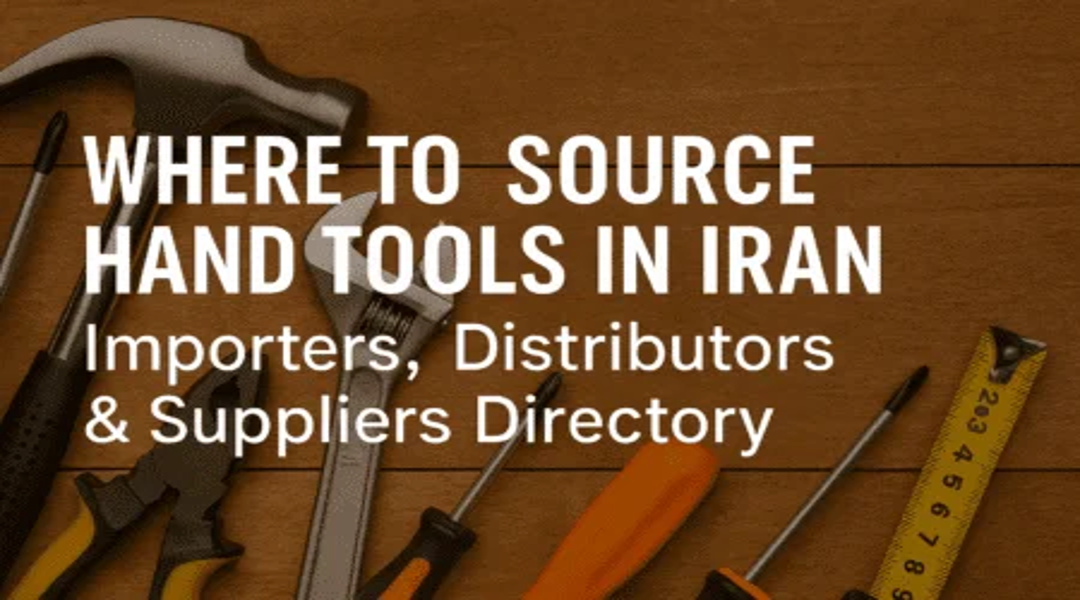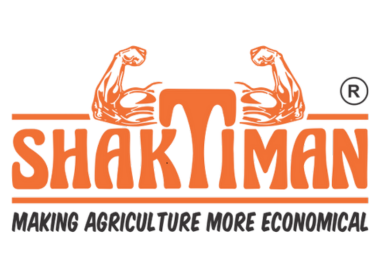
Introduction
Iran’s growing industrial and construction sector has fueled a strong demand for high-quality hand tools. From workshops and manufacturing units to automotive garages and construction sites, reliable tools are at the heart of every project. For businesses looking to enter or expand in the Iranian market, finding trusted hand tools importers, distributors, and suppliers in Iran is the first step toward building a strong supply chain.
This guide will serve as your complete directory to sourcing hand tools in Iran, with insights into the market landscape, major B2B suppliers, and strategies to connect with reliable partners. Whether you’re an importer, wholesaler, retailer, or industrial buyer, this resource will help you navigate the Iranian hand tools market efficiently.
Iran’s Hand Tools Market Overview
The Iranian hand tools market is steadily growing due to:
- Construction boom: Expanding infrastructure projects require reliable tools.
- Automotive industry demand: Mechanics and workshops need precision tools daily.
- DIY and household repairs: An emerging middle class is driving retail tool sales.
- Industrial growth: Factories and production facilities invest in quality hand tools for operations.
According to regional market studies, the demand for imported hand tools in Iran remains high, as local manufacturing capacity doesn’t fully meet industry standards. This has created opportunities for global exporters and local distributors to partner and fill the supply gap.
Why Source Hand Tools in Iran?
Iran offers a strategic advantage in the hand tools trade:
- Growing B2B demand: Thousands of workshops, wholesalers, and retail shops across the country.
- Gateway to neighboring markets: Iran serves as a trade hub for Central Asia and the Middle East.
- Diverse product needs: From pliers and wrenches to heavy-duty industrial tools, the market spans multiple categories.
- Long-term growth potential: With ongoing construction and industrial development, tool demand is set to rise.
Types of Hand Tools in High Demand
When sourcing hand tools in Iran, the most requested categories include:
- Wrenches & Spanners – Widely used in automotive and construction.
- Pliers & Cutters – Essential for electricians, mechanics, and builders.
- Hammers & Mallets – Popular in both industrial and household use.
- Screwdrivers & Bit Sets – Constant demand in workshops and repair shops.
- Measuring Tools – Tapes, calipers, and gauges are heavily imported.
- Tool Kits & Sets – A growing trend among wholesalers for bulk distribution.
Directory: Leading Importers, Distributors & Suppliers in Iran
Here’s a directory-style overview of where businesses can source hand tools in Iran:
1. Importers of Hand Tools in Iran
Importers play a key role in supplying Iranian wholesalers and distributors. They often establish relationships with Indian, Chinese, and European manufacturers. Typical imports include:
- Industrial-grade wrenches, pliers, and spanners.
- Precision measuring instruments.
- Bulk tool kits for workshops.
How to connect with importers:
- Use Iranian trade fairs like Tehran International Industry Exhibition.
- Leverage B2B platforms (Alibaba, Tradekey, Global Sources).
- Connect with Chambers of Commerce for updated importer directories.
2. Distributors & Wholesalers in Iran
Distributors bridge the gap between importers and retail shops. They typically handle:
- Bulk supply contracts with workshops and construction companies.
- Regional distribution networks to cover major cities like Tehran, Mashhad, and Isfahan.
- After-sales support and warranties, which help build trust.
Key advantages of working with distributors:
- Local presence ensures quick delivery.
- They understand regional demand fluctuations.
- They offer access to multi-brand hand tool ranges.
3. Suppliers & Retail Networks
Suppliers are often directly connected to retail hardware stores and B2B buyers. In Iran, suppliers typically:
- Provide localized pricing for smaller buyers.
- Offer credit facilities to long-term customers.
- Sell both imported and locally manufactured tools.
Where to find them:
- Industrial hubs in Tehran, Shiraz, Tabriz, and Mashhad.
- Online B2B directories such as Iran Yellow Pages.
- Networking through hardware associations.
How to Source Hand Tools from Iran – Step by Step
- Research Market Needs
- Identify which tools are in demand (automotive vs. construction).
- Study Iran’s import regulations for hand tools.
- Shortlist Reliable Importers/Distributors
- Look for suppliers with established track records.
- Check if they have partnerships with international brands.
- Verify Certifications & Quality
- Ensure suppliers meet ISO standards or equivalent.
- Request samples before committing to bulk orders.
- Negotiate Trade Terms
- Discuss pricing, warranties, and after-sales service.
- Use Incoterms (FOB, CIF, DDP) to clarify logistics.
- Build Long-Term Partnerships
- Offer bulk contracts for better pricing.
- Maintain communication for timely reorders.
Platforms to Find Hand Tools Importers & Suppliers in Iran
Here are some of the best B2B platforms and methods to connect with reliable hand tools suppliers:
- Iran Chamber of Commerce & Industry (ICCI) – Provides verified lists of importers.
- Trade fairs – Tehran Industry Exhibition, Iran Hardware Fair.
- Online Directories – Iran Yellow Pages, Kompass Iran.
- International Platforms – Alibaba, Global Sources, Made-in-China (many Iranian importers are registered here).
- LinkedIn Networking – Search by keywords like “hand tools distributor Iran”.
Comparison: Iran vs. Other Hand Tools Markets
To put Iran’s hand tools market in perspective:
- Iran vs. Turkey: Turkey has a larger local manufacturing base, while Iran relies more on imports.
- Iran vs. UAE: The UAE acts as a re-export hub, while Iran is a direct consumer market.
- Iran vs. India: India is a strong exporter to Iran, especially in cost-effective tool categories.
This makes Iran a high-potential destination for exporters and a strong buyer’s market for distributors.
Challenges in Sourcing Hand Tools in Iran
While the opportunities are vast, businesses must also be aware of challenges:
- Import regulations & sanctions – Certain tools may face restrictions.
- Currency fluctuations – Rial instability affects pricing.
- Trust & verification – Not all suppliers are reliable, hence due diligence is critical.
- Logistics & shipping delays – Cross-border trade may face longer transit times.
Tips for B2B Buyers & Importers
- Always request supplier references before finalizing deals.
- Start with small trial orders to assess reliability.
- Use secure payment methods (LC, escrow) for first transactions.
- Establish clear quality benchmarks in contracts.
- Maintain regular communication to avoid delays.
FAQs
Q1: Who are the leading hand tools importers in Iran?
A: Major importers are concentrated in Tehran and handle bulk imports from China, India, and Europe. Directories and chambers of commerce are the best way to identify them.
Q2: Can foreign companies export directly to Iranian distributors?
A: Yes, but businesses must comply with trade regulations and consider sanctions. Many exporters use local agents for smoother operations.
Q3: What is the most in-demand category of hand tools in Iran?
A: Wrenches, pliers, screwdrivers, and tool kits are consistently in demand across industries.
Q4: How can I verify Iranian suppliers?
A: Use ICCI directories, trade associations, and request certifications before closing deals.
Conclusion
Sourcing hand tools in Iran requires the right balance of market research, trusted partners, and secure trade practices. With its expanding industrial base and growing demand for reliable tools, Iran is a promising market for global exporters, wholesalers, and B2B buyers.
By leveraging this directory of importers, distributors, and suppliers, businesses can streamline their sourcing process, minimize risks, and maximize trade opportunities.
Whether you are a wholesaler seeking bulk imports or a distributor looking for reliable partners, Iran’s hand tools market offers abundant growth potential in 2025 and beyond.























